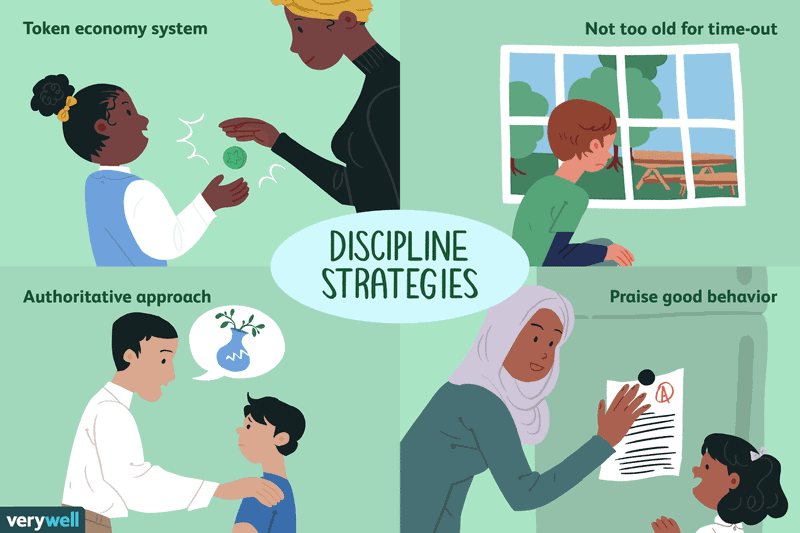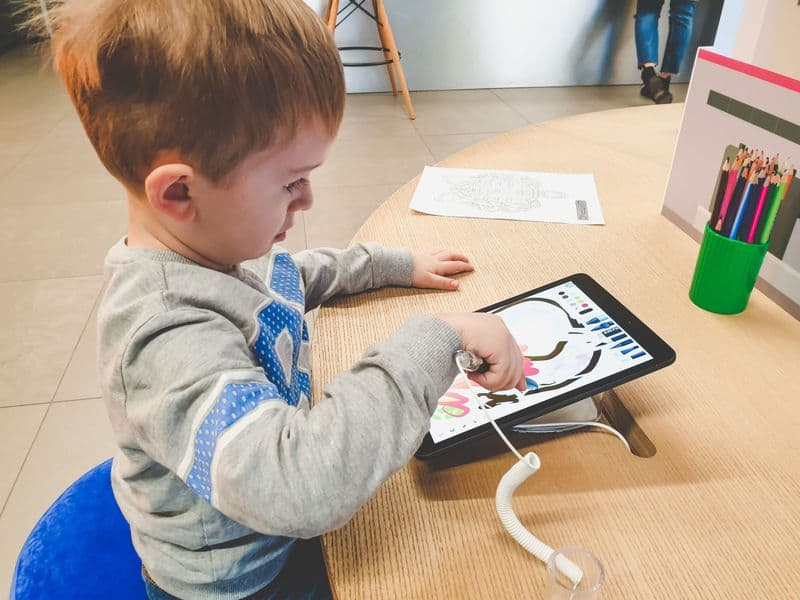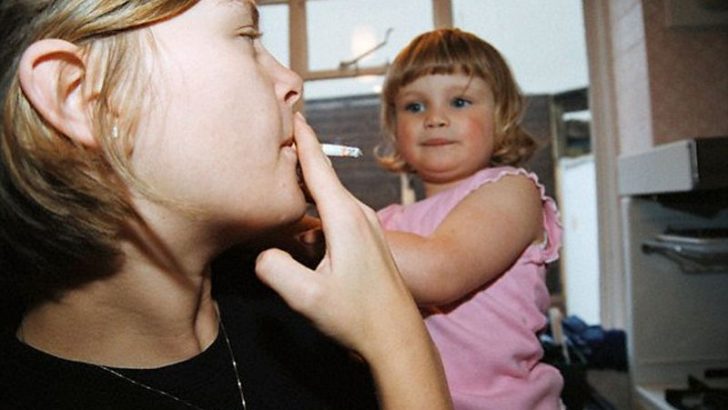Parenting is a journey filled with challenges, joys, and learning experiences. As society evolves, so do our approaches to raising children. While we may look back fondly on the past, not all parenting techniques have stood the test of time. In fact, some methods that were once widely accepted are now considered outdated and even harmful.
Understanding these past approaches can help us avoid repeating mistakes and embrace more nurturing and effective strategies. By recognizing and learning from the past, we can build a brighter future for our children, ensuring they grow up in a supportive and loving environment. Let’s explore some past parenting techniques that are best left behind.
1. Corporal Punishment

Corporal punishment was once a common disciplinary method. Parents often believed that physical punishment would instill discipline and respect. However, research has shown that it can lead to increased aggression and mental health issues in children. Instead of promoting discipline, it often fosters fear and resentment. Modern parenting emphasizes positive reinforcement and communication. Building trust and understanding between parents and children can lead to better outcomes. It’s essential to foster an environment where children feel safe and valued. Shifting away from physical punishment is a crucial step towards nurturing healthier parent-child relationships.
2. Children Should Be Seen and Not Heard

The notion that children should be seen and not heard was prevalent. It discouraged open communication and emotional expression, stifling children’s personalities and self-esteem. Today, we know the importance of fostering communication. Encouraging children to express themselves helps build confidence and emotional intelligence. Children should feel their thoughts and feelings matter. Creating open dialogue within families strengthens bonds and aids in emotional development. By listening to children, parents can better understand their needs. A supportive environment promotes growth and mutual respect, paving the way for more confident and expressive individuals.
3. Strict Gender Roles

In the past, strict gender roles limited children’s experiences. Boys were encouraged to be tough and girls to be nurturing. These stereotypes restricted opportunities and personal growth. Today, we recognize the harm in enforcing gender-specific roles. Allowing children to explore interests beyond societal norms fosters holistic development. Encouraging diverse experiences helps children develop a well-rounded identity. Parents can empower their children by supporting their interests, irrespective of gender. It’s vital to challenge traditional roles and promote equality. This approach leads to greater self-discovery and confidence for both boys and girls.
4. Fear-Based Discipline

Fear-based discipline was once a common practice. Parents believed instilling fear would ensure obedience. However, this approach often leads to anxiety and low self-esteem. It can create a cycle of fear and rebellion, rather than understanding and cooperation. Today’s parenting focuses on empathy and setting clear expectations. Building a foundation of trust encourages healthy communication. Children thrive in environments where they feel respected and understood. Replacing fear with guidance fosters long-term behavioral change. It’s crucial to create a nurturing atmosphere for emotional and social development.
5. Withholding Affection as Punishment

In the past, some parents withheld affection as a form of punishment. This method aimed to correct behavior by withdrawing love and attention. However, it can lead to feelings of abandonment and insecurity. Children need consistent love and support to develop emotionally. Modern parenting emphasizes unconditional love, even when addressing behavioral issues. Children should feel secure in their parents’ affection, regardless of their actions. This approach fosters resilience and emotional stability. By maintaining a loving connection, parents can guide children more effectively through challenges.
6. Overemphasis on Obedience

In previous generations, obedience was highly valued. Children were expected to comply without question. This focus on obedience stifled creativity and critical thinking. Today, we recognize the importance of nurturing independent thought. Encouraging children to ask questions and think critically enhances their problem-solving skills. It’s important to balance guidance with freedom, allowing children to explore and learn. Empowering children to make decisions fosters confidence and responsibility. By valuing independent thinking, parents help children develop into innovative and adaptive adults.
7. Minimizing Children’s Emotions

In the past, children’s emotions were often minimized or dismissed. Parents advised children to “toughen up” or “stop crying.” This approach invalidated their feelings and hindered emotional growth. Today, acknowledging and validating emotions is crucial for mental well-being. Encouraging children to express their feelings helps develop emotional intelligence. Parents should listen actively and empathize with their children. This support aids in processing emotions and builds trust. By validating emotions, parents nurture resilience and emotional health. Children learn to manage their feelings constructively.
8. Over-Scheduling Activities

Parents once believed that keeping children constantly busy was beneficial. Over-scheduling led to stress and burnout. Children need time for unstructured play and relaxation. Balancing structured activities with free time fosters creativity and self-discovery. It’s important to allow children the freedom to explore their interests at their own pace. Modern parenting emphasizes the value of downtime for mental health. Encouraging balance helps children develop time-management skills and reduces anxiety. Children thrive when they have opportunities to rest and recharge.
9. Ignoring Mental Health

Mental health was often overlooked in past parenting. Children’s emotional struggles were dismissed as phases or attention-seeking. Today, we understand the importance of addressing mental health issues early. Recognizing and supporting children’s mental health needs is crucial for their development. Parents should encourage open conversations about feelings and seek professional help if necessary. Providing a supportive environment helps children feel understood and valued. Early intervention can prevent long-term issues and promote resilience. Prioritizing mental health is essential for overall well-being.
10. Using Food as a Reward or Punishment

Parents once used food as a tool for behavior control. Rewarding with sweets or withholding treats was common. This practice can lead to unhealthy relationships with food. It’s important to promote balanced eating habits without associating food with behavior. Modern parenting encourages healthy attitudes towards food and meal times. Encouraging children to enjoy a variety of foods supports their nutritional needs. By separating food from rewards and punishments, parents foster a positive approach to eating. This helps prevent eating disorders and promotes overall health.
11. Discouraging Creativity and Play

In the past, creativity was often discouraged in favor of discipline and order. Play was seen as frivolous compared to academic pursuits. Today, we understand the critical role of creativity and play in child development. Encouraging imaginative play enhances problem-solving skills and cognitive growth. Parents should provide opportunities for creative expression without judgment. Supporting children’s creative endeavors fosters confidence and innovation. By valuing play, parents contribute to a well-rounded and fulfilled childhood experience. Creativity is a vital component of learning and emotional development.
12. Neglecting to Teach Life Skills Early

In the past, life skills were often taught later in life. Children missed opportunities to learn essential skills early. Today, we recognize the importance of teaching life skills from a young age. Encouraging children to take on age-appropriate responsibilities builds independence. Skills like cooking, budgeting, and personal care are vital for adulthood. Parents should integrate life skills into daily routines to foster competence. Early exposure to these skills helps children become self-sufficient and confident. It’s crucial for children to learn practical skills alongside academic knowledge.

Well, hello there!
My name is Jennifer. Besides being an orthodontist, I am a mother to 3 playful boys. In this motherhood journey, I can say I will never know everything. That’s why I always strive to read a lot, and that’s why I started writing about all the smithereens I came across so that you can have everything in one place! Enjoy and stay positive; you’ve got this!

